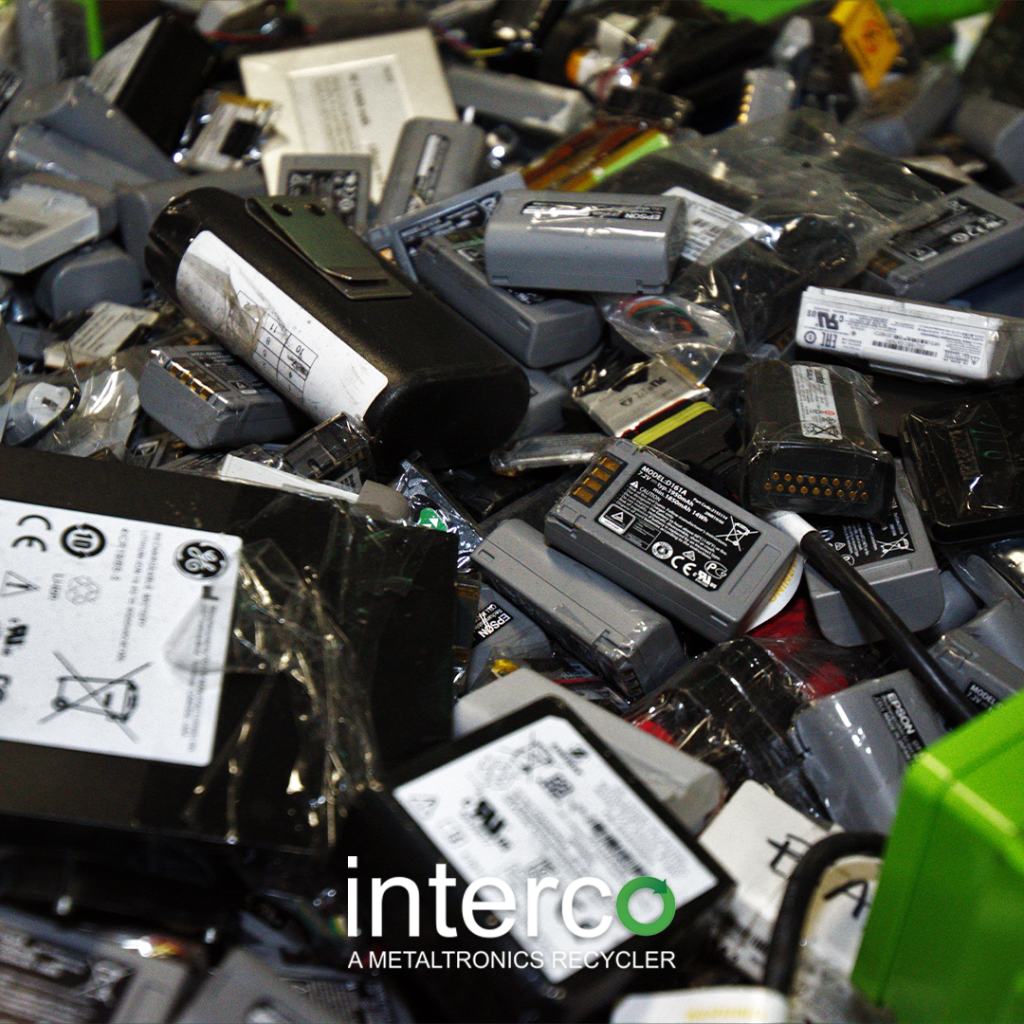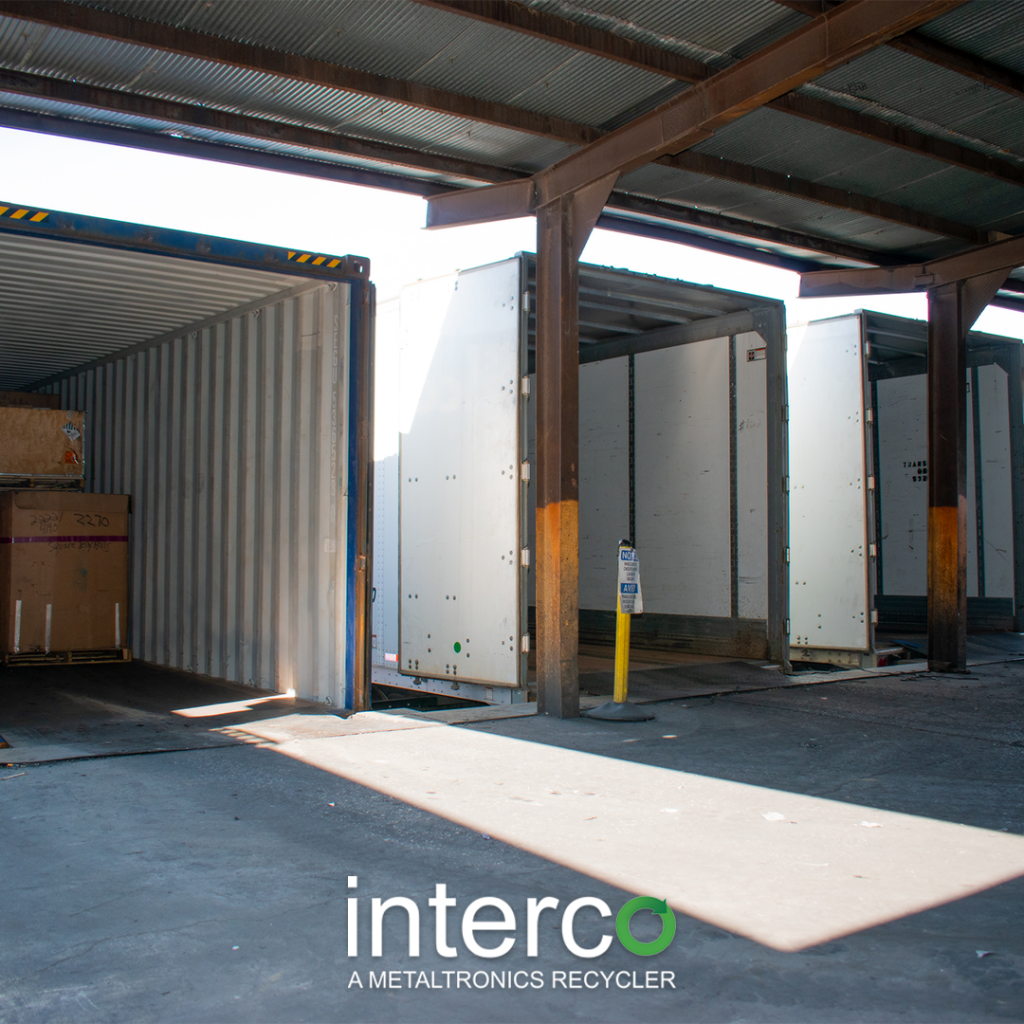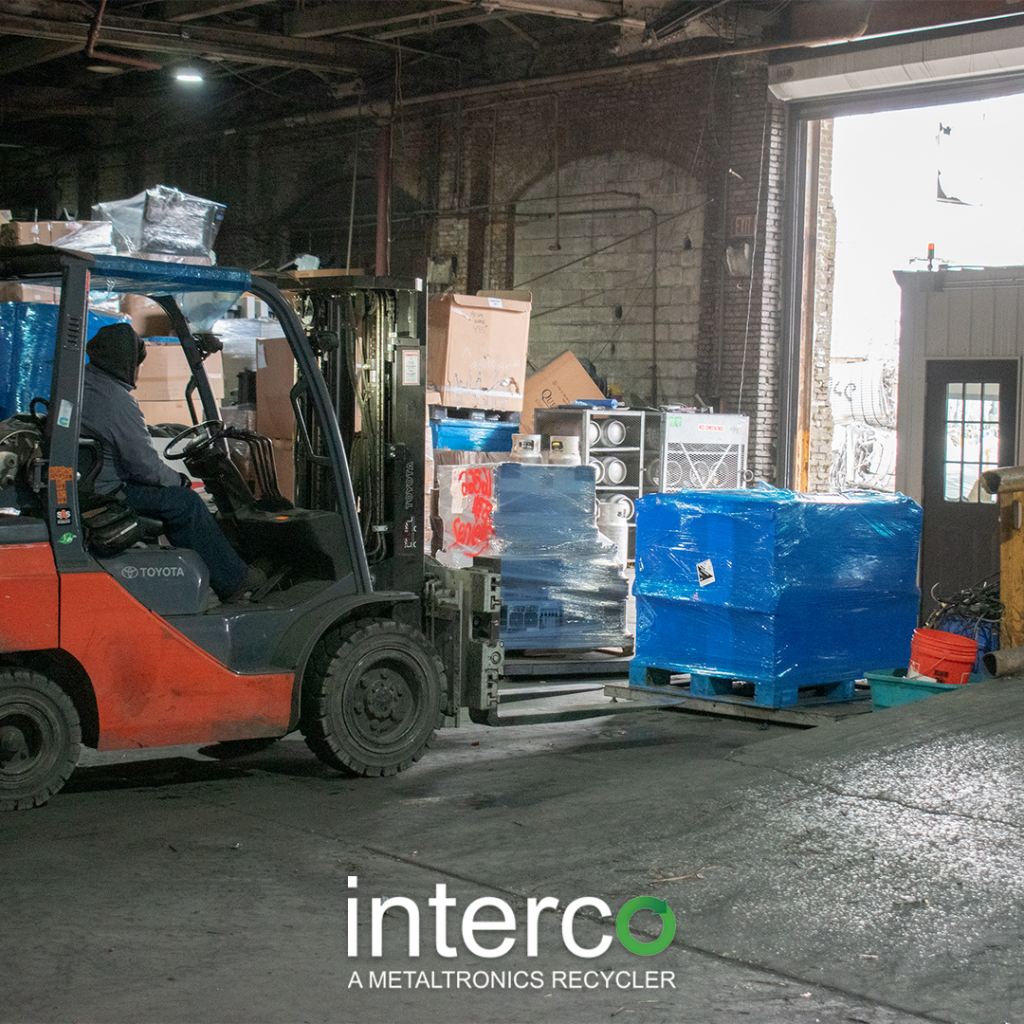Discover a Scrap Lithium-Ion Batteries Processing Facility

Discover a Scrap Lithium-Ion Batteries Processing Facility
Billions of lithium-ion batteries are discarded every year and given the high cost of lithium cobalt oxide, salvaging precious metals makes economic sense. Although, few companies recycle these batteries. Interco operates as a scrap lithium-ion batteries processing facility with the necessary certifications and equipment.
Lithium-ion batteries are complex products, so many paths for their recycling are possible.
Batteries from consumer electronic devices are being increasingly regulated because they can be a problematic material in the recycling stream. Households and the industrial waste industry are actively searching for the solution to obsolete batteries.
Lithium-ion batteries contain these rich minerals and valuable metals that allow for extended manufacturing of batteries if recycled.
These valuable metals and other materials can be recovered, processed, and reused. Moreover, it is important to recognize the need for a scrap lithium-ion batteries processing facility when handling lithium-ion batteries.

Scrap Lithium-Ion Batteries Processing Facility
Lithium-ion batteries contain a variety of chemicals that require the use of a scrap lithium-ion batteries processing facility. Improper disposal has significant consequences, such as environmental pollution and loss of material resources.
Recycling allows for the recovery of rich metals and reduces the harmful effects on the environment that improper disposal causes.
Battery waste continues to grow exponentially globally. When the waste starts to pile up, businesses often start the process of picking a scrap lithium-ion batteries processing facility.
First, your business will want to match your recycling needs with the services offered. Lithium-ion batteries are precious for their use and composition. It is significant that the disposal service chosen can recycle lithium-ion batteries.
The handling of lithium-ion batteries during the end-of-life phase of electronic products requires additional attention. While the pile of spent lithium-ion batteries once powered those cars, industry analysts predict that by 2020, China alone will generate some 500,000 metric tons of used lithium-ion batteries.
Various metals and minerals create a lithium-ion battery. These metals, like other batteries, include:
- Nickel
- Cobalt
- Copper
These spent batteries are most found in landfills even though lithium-ion batteries are recyclable.

Lithium-Ion Battery Recycling Process
Lithium-ion batteries are recyclable, but the process is delicate. Therefore, not all recycling centers have processes for handling this type of electronic waste like a scrap lithium-ion batteries processing facility. Additionally, your business can’t deal with it in the same way as you would deal with other material waste.
Interco recycles scrap lithium-ion batteries with the goal of extracting the valuable metals from the battery and reducing further pollution. Before retrieving the metals, recyclers follow a recycling process.
- Prior to the recycling process, companies need to deactivate the batteries.
- Lithium-ion batteries are put in a specialized room that is oxygen-free.
- Hydrometallurgy is the process of extracting metals from ores.
- Next, the leaching process refers to the process of using aqueous solutions to extract metal from other metal-bearing materials.
- Separate the battery components into three different items. These items may include cobalt, steel, aluminum, copper, plastic.
- As a result, recyclers retrieve these valuable metals, and companies sell them.
With the average battery only set to last eight years, some of those 2017 batteries could need to be replaced and disposed of by 2025.
If batteries are handled incorrectly, there is a higher risk of fire, pollution, and other harmful effects. As a result, Interco performs the recycling process for lithium-ion batteries carefully on a facility comprised of five buildings — approximately 400,000 square feet total — on more than 35 acres.
Interco, as an ISO 9001 Quality Management System certified company, continues an international-accepted uniform quality system, supplies the highest levels of customer service, and manages its material in the highest regard.
Interco is a Scrap Lithium-Ion Batteries Processing Facility
Interco has the capability to buy and sell scrap lithium-ion batteries for recycling purposes. Furthermore, the team at Interco accepts, processes, trades, and recycles an array of nonferrous metals. Interco recycles batteries of all shapes, sizes, and chemistry. All material will be recycled by approved ISO 14001 Environmental Management and ISO 45001 Occupational Health and Safety best practices. As a result, Interco confirms the exact weights and records upon receipt, and we issue a written certificate of recycling. Thus, the team at Interco continues to lead the way in terms of innovative industrial recycling solutions. Finally, to discover more about how to recycle lithium-ion batteries, click here.